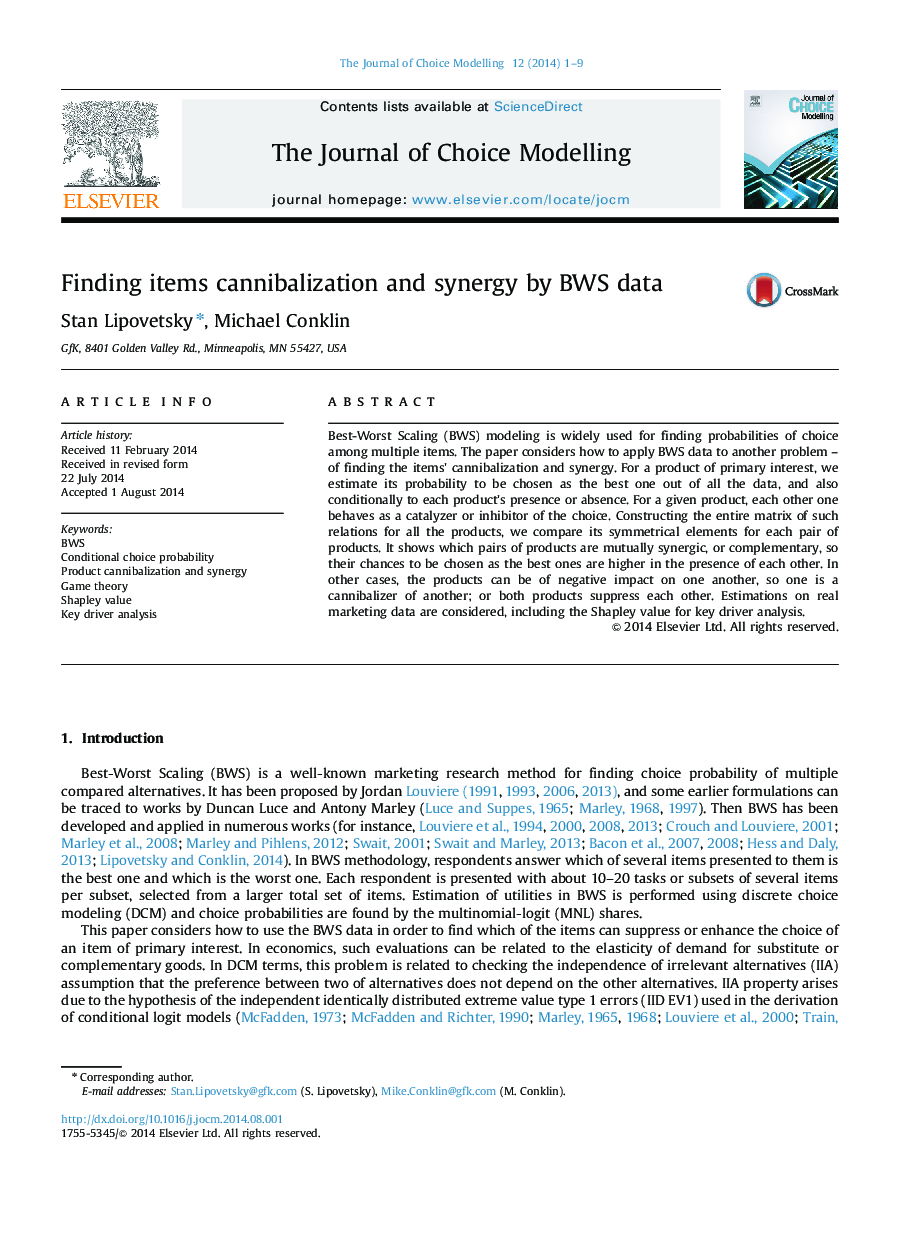| Article ID | Journal | Published Year | Pages | File Type |
|---|---|---|---|---|
| 5091867 | Journal of Choice Modelling | 2014 | 9 Pages |
Abstract
Best-Worst Scaling (BWS) modeling is widely used for finding probabilities of choice among multiple items. The paper considers how to apply BWS data to another problem - of finding the items׳ cannibalization and synergy. For a product of primary interest, we estimate its probability to be chosen as the best one out of all the data, and also conditionally to each product׳s presence or absence. For a given product, each other one behaves as a catalyzer or inhibitor of the choice. Constructing the entire matrix of such relations for all the products, we compare its symmetrical elements for each pair of products. It shows which pairs of products are mutually synergic, or complementary, so their chances to be chosen as the best ones are higher in the presence of each other. In other cases, the products can be of negative impact on one another, so one is a cannibalizer of another; or both products suppress each other. Estimations on real marketing data are considered, including the Shapley value for key driver analysis.
Keywords
Related Topics
Social Sciences and Humanities
Business, Management and Accounting
Marketing
Authors
Stan Lipovetsky, Michael Conklin,
